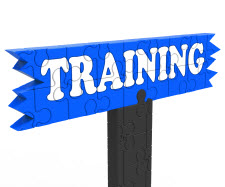
They’re the subtle skeptics. They don’t openly oppose things. Instead they stand on the sideline judging and evaluating before they decide whether or not to participate.
For example, imagine two people who both pay $1,500 to attend a seminar. The enthusiastic engager says, “I’m going to make sure I get my fifteen hundred bucks worth.” They look at the materials in advance to decide where to hone in their attention. From the moment the seminar begins, the enthusiastic engager is looking for ways to implement the advice.
Subtle skeptics, on the other hand, worry about whether it will be worth it from the moment they send in their deposit. They take a wait and see attitude. When the seminar starts, subtle skeptics are still mentally on the sideline, judging and evaluating. They may or may not engage depending on how it goes.
Both people have spent the exact same $1500, and both will spend a day of their time attending the seminar.
Who do you think will get more value from the program? The enthusiastic engager, who was all in from the get-go? Or the subtle skeptic, who hung back, evaluating whether or not it was worth the time?
Again, both people have already committed the exact same amount of time and money. While subtle skeptics are judging, the enthusiastic engagers are enjoying themselves and gaining value.
Subtle skeptics show up everywhere. An organization decides to launch a new product. Subtle skeptics aren’t sure it’s going to work, so instead of giving it their all, they hang back.
You can always spot subtle skeptics in meetings because they never take a real stand, pro or con. Instead of creating value, subtle skeptics get the grim satisfaction of saying, “I never really thought this would work.”
Without realizing subtle skeptics cheat themselves out of a lot of. They buy a house, decide to take music lessons, or go on a date, and instead of deciding in advance to make the most of it, they stay stuck in evaluation mode. Was this house really worth the money? Can an adult actually learn to play the piano? Is this date going to be worth an evening of my time?
There’s a time for evaluation. There’s also a time to stop evaluating. If you’re going to be part of the product launch, or on the business team, be on it. If you’re going to buy the house, take the lesson or go on the date, be fully present. Show up assuming that it’s going to go well.
Hanging back doesn’t reduce your risk of things going badly, it increases it. People can tell when they’re being judged. Be it a boss, colleague or music instructor, constantly  evaluating them has a chilling effect on their performance.
evaluating them has a chilling effect on their performance.
In the aforementioned seminar scenario, those I’ve run and those I’ve attended, I’ve observed subtle skeptics cheating themselves out of full value.
Jumping in full throttle doesn’t mean you have to go along with bad ideas, nor does it mean you have to stay engaged if something is truly awful.
But if you’re going to show up, pay your money, or take the time to attend something, jump in all the way. You’ll enjoy yourself more, and you’ll increase the odds that the experience is valuable.